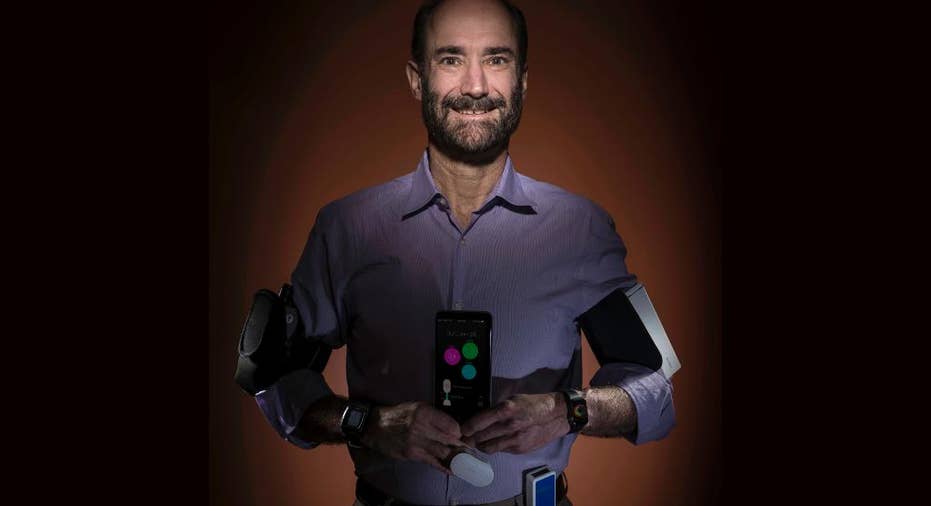Testing wearable sensors as 'check engine' light for health

WASHINGTON – Step-counting fitness trackers are popular, but it's not clear if they really make a difference in users' health. To find out, Stanford University is tracking volunteers who wear devices that monitor more than mere activity.
Thursday, researchers reported the earliest findings — hints that day-to-day variations in heart rate, oxygen levels and other functions may signal that an illness is brewing.
Geneticist Michael Snyder, participating in his own study, saw that firsthand when a smart watch and other sensors charted such changes before he felt any Lyme disease symptoms.
Interest in wearables for health is growing with efforts to better tailor medicine to patients' genes, environment and lifestyle — but first scientists must learn what's normal for different people under different conditions.
The study is published in PLOS Biology.



















